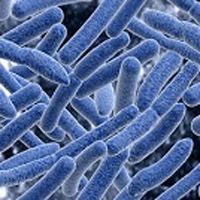Research Offers New Insight into Hirschsprung's Disease
Researchers discovered defects in the Sox10 protein, a factor regulating gene expression, which evidently plays a role in developing post-operative gastrointestinal (GI) function in patients afflicted with Hirschsprung's disease.

Researchers discovered defects in the Sox10 protein, a factor regulating gene expression, which evidently plays a role in developing post-operative gastrointestinal (GI) function in patients afflicted with Hirschsprung’s disease.
A congenital disorder resulting from the absence of ganglion cells within the colon, Hirschsprung’s disease is typically treated with surgery; however, despite surgery, many patients (5 to 33%) are reported to still suffer from “residual chronic constipation”.
The study, published in Cellular and Molecular Gastroenterology and Hepatology, was led by E. Michelle Southard-Smith, PhD, Associate Professor, Department of Medicine, Vanderbilt University Medical Center.
Study results indicated that in mice models, the Sox10Dom mutation disrupted the balance of cell types produced from neural progenitors, “affecting GI motility in the proximal, ganglionated intestine of adult animals.”
According to Southard-Smith, their findings “Partially explain adverse outcomes in surgically treated patients with Hirschsprung’s disease.”
Interesting to note that regions of Sox10Dom mice intestines showed distinct abnormalities; GI transit assays appeared to have revealed sex and age dependent effects, as well. Melissa Musser, the study’s medical scientist training program student said, “These results suggest that timing and environment play a key role not only in differentiation of neural progenitors, but also ultimately in functional outcomes.”
Jerrold Turner, MD, PhD, AGAF, expressed, “This research provides new understanding of processes required for development of nerves and associated cell types that might be impaired in diseases associated with defective enteric nervous system function. Continued research in this area will ultimately lead to improved diagnostic and therapeutic approaches for patients suffering from these debilitating conditions.”
Southard-Smith commented, “We hope that our research will pave the way for future studies and help clinicians better identify and treat Hirschsprung’s disease patients at high risk for experiencing post-surgical GI function.”